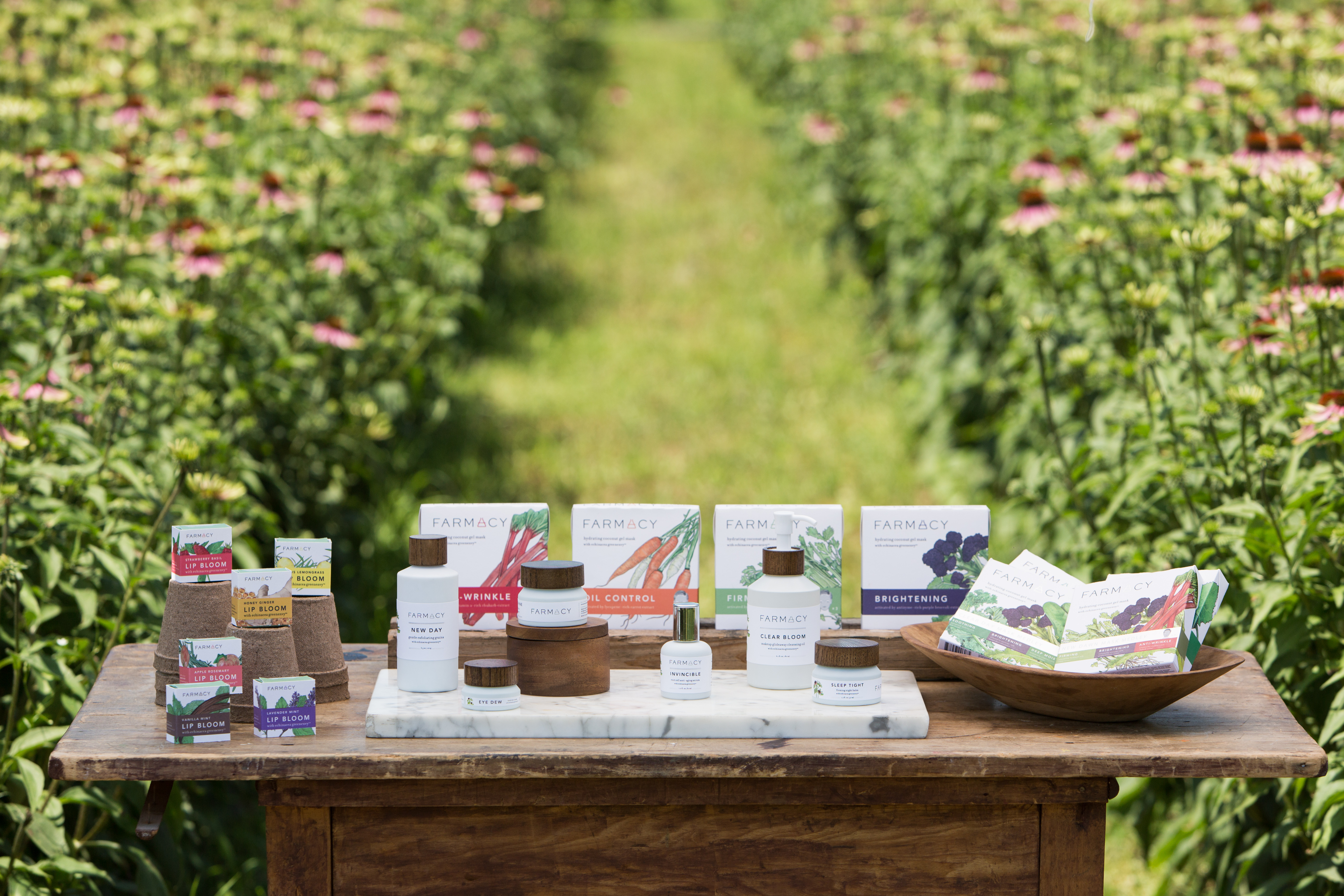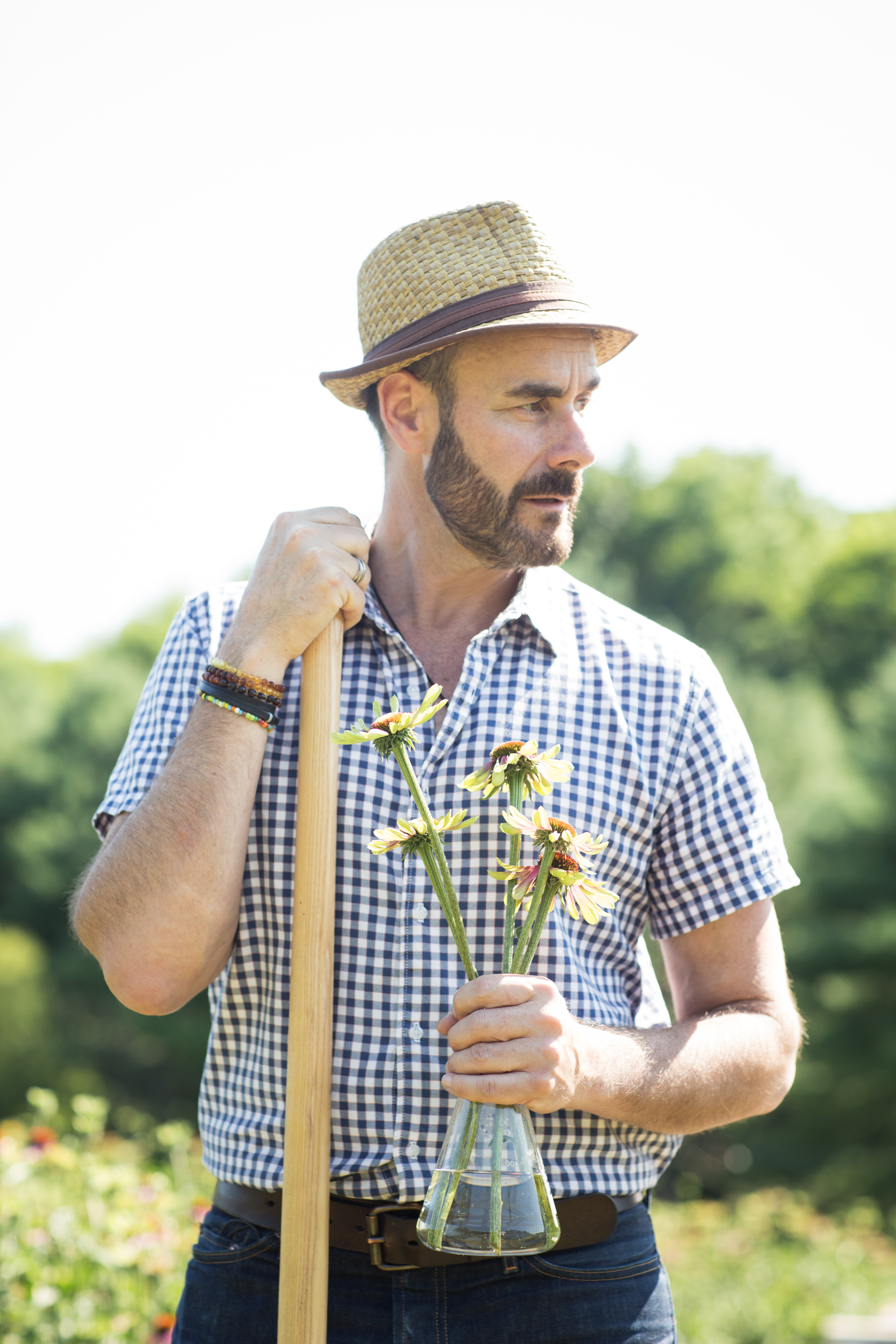
Farmacy’s “Farm to Face” Skincare is the Future of Beauty
These days, all natural skincare is practically de rigueur; across the country people are not only realizing that what goes on their skin is as important as what goes into their bodies, but increasingly– as with the local food movement– consumers care about where their ingredients come from.
Farmacy, an emergency skincare brand based in upstate New York, makes a range of what they champion as “farm to face” beauty products– from face masks and lip balms to eye cream, makeup remover, hydrosols, and a super popular all-natural sunscreen made with high quality botanical ingredients. For many, the idea of plant-based skincare is not new, but Farmacy’s approach in crafting their “farmer cultivate, scientist activated” ingredients is what sets them apart in a beauty market increasingly saturated with natural and low-chemical skincare.
Accordingly, farm-grown botanicals are a defining tenet of Farmacy’s beauty collection, which fuses age-old wisdom with cutting-edge technology to create irritant-free, bioactive formulations for fresh, radiant skin.
The active ingredients in their skincare are harvested sustainably for maximum nutrients and to ensure accountability up the supply chain– not only does co-founder Mark Veeder know exactly what is in his proprietary formulations, but he partnered with farming expert Robert Beyfuss to cultivate plants in upstate New York (where Veeder grew up), so that the company could grow ingredients themselves.
A unique patent-protected variant of Echinacea Purpurea, GreenEnvy™– one of Farmacy’s signature ingredients– contains a high concentration of the phytochemical Cichoric Acid, a powerful antioxidant that helps fight free radical attack and prevent collagen breakdown while also normalizing the skin pigmentation process to promote a more evenly-toned complexion.
“We use science to enhance the goodness that nature provides,” they write of their unique synthesis of scientific rigor and environmental stewardship, which Veeder animates in the video, below. “Our products combine naturally derived ingredients, which have been activated by our team of scientists. Farmacy products are a synthesis of nature and science.”
“GreenEnvy is being grown just a few miles from where I grew up,” Veeder explains. “The farmer that I found to grow it is actually the guy that helped my dad start his Christmas Tree Farm.”
What appeals most to us about this model– beyond the beauty benefits– is the social and environmental stewardship at the base of the supply chain.
By creating jobs in their local community, both Veeder and Beyfuss have initiated change in a community once bereft of farming opportunities, which had dwindled in the technological age despite evidence that more and more young people are interested in agricultural work.
“Our business plan has us hiring local people to work on the farm,” explains Beyfuss. “Young people who would normally be leaving this area. We are trying to create an opportunity where young people can stay and work and make a decent wage right here in Greene County [New York].”
Plus, for New Yorkers interested in buying truly local skincare, the brand’s close community manufacturing is a boon: Echinacea GreenEnvy from their farm is transported only three hours to the lab, where it undergoes a cold pressing process (similar to the same cold-press method that’s ideal for juicing) to ensure maximum nutrient load and efficacy of the final product.
By so doing, not only does Farmacy’s skincare support small farms and give people jobs on those farms, but it demonstrates that hi-end skincare need not be manufactured with cheap ingredients by foreign monoliths.
“I hope that when I look back in 25 years I see that this product really helped people– not only with cosmetics, but also that it helped give back and helped support the small farms that are dwindling in New York state,” says Veeder. The result is truly local skincare that activates the community and gets people thinking about what, exactly, they want to put on their skin– and the empowering process that got it to their shelves.











































